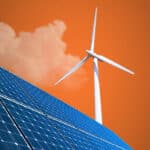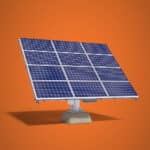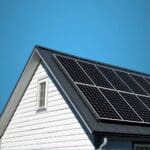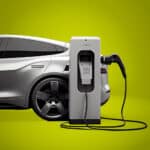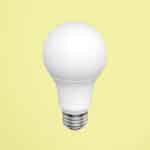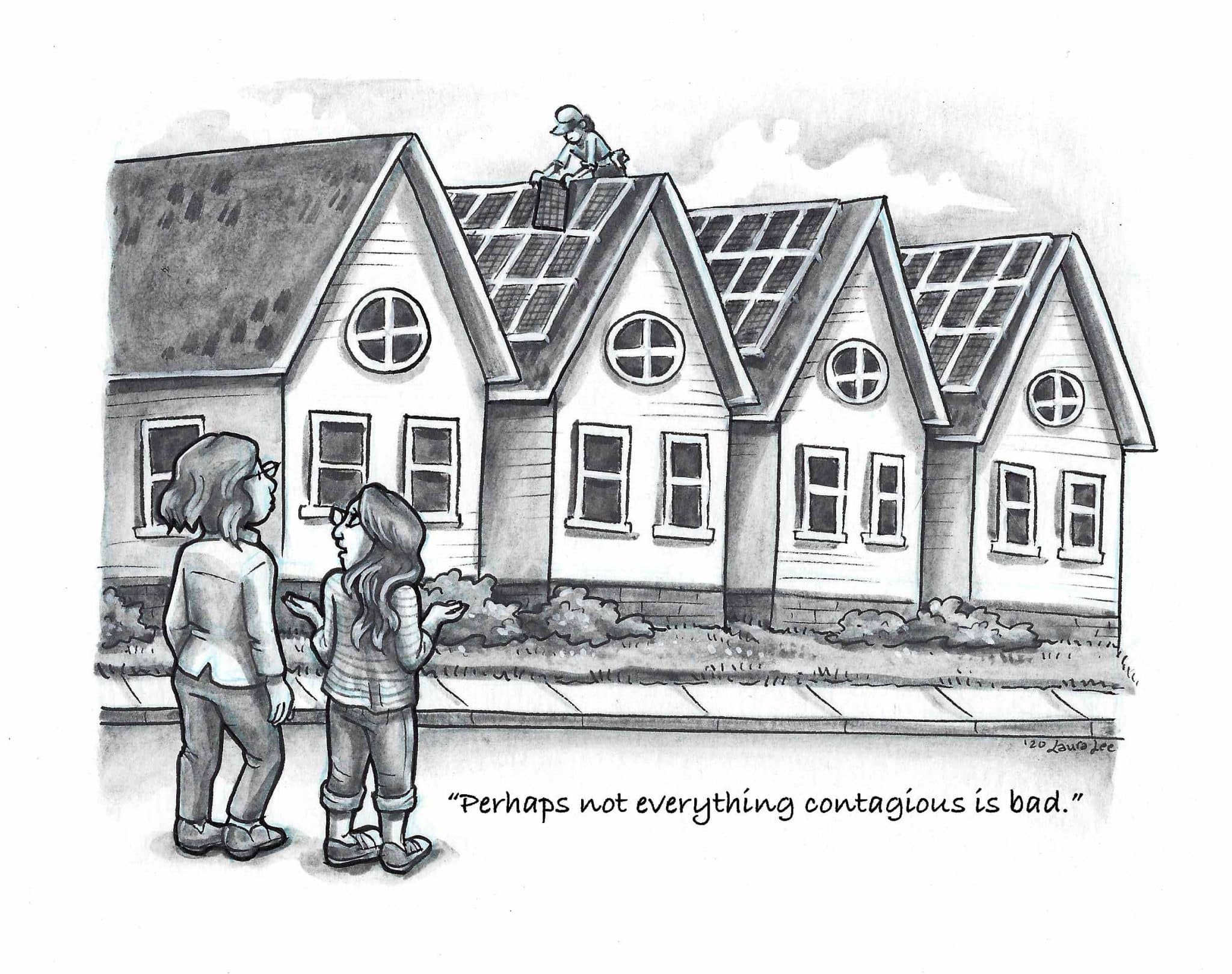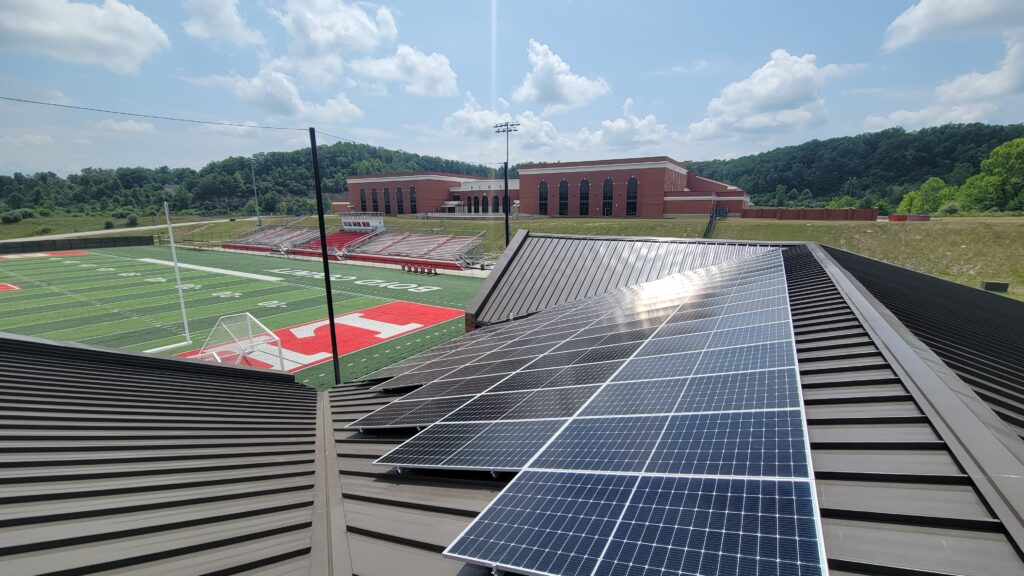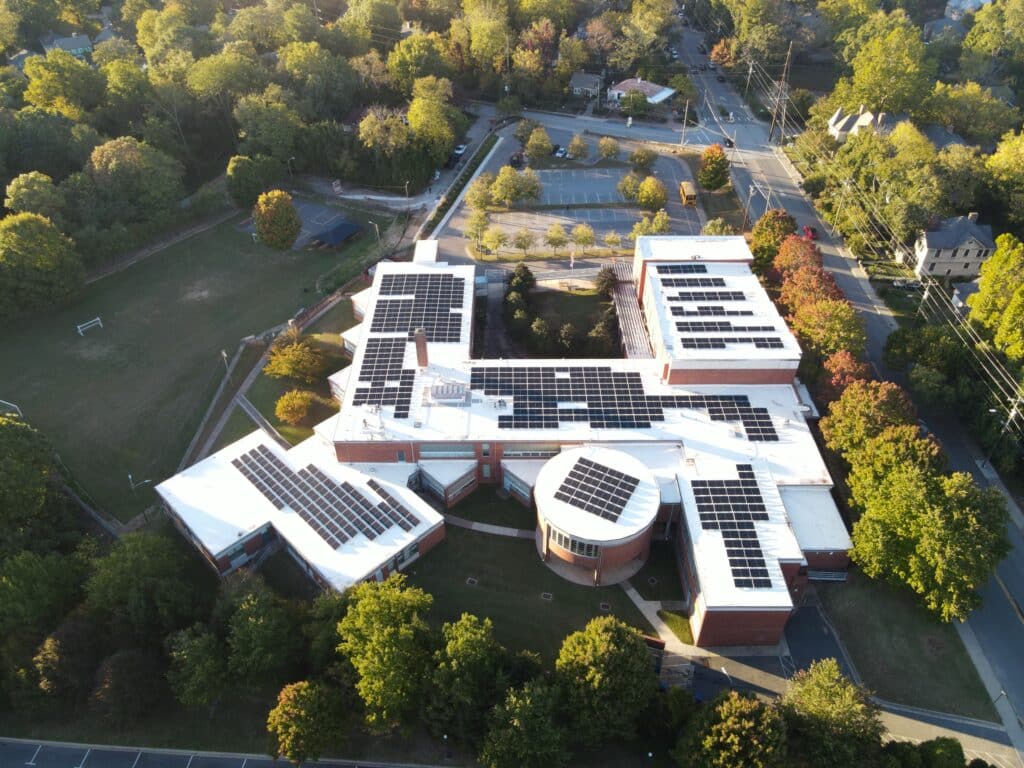If you’re thinking about putting solar on your roof or buying an electric vehicle (EV), chances are you have a friend or neighbor that’s already done it. Research shows that clean energy actions are contagious (the good kind of contagious, like smiles). If we see our peers adopting solar panels or other clean energy technology, we’re going to want it too. It’s basic human psychology, and it’s helping to push clean energy to the mainstream. So hop on the bandwagon—there’s room for everybody.
Peer influence is a key reason why, for decades, Americans have been buying bigger houses, driving more SUVs, renting more storage units, and generally living more energy-intensive and stuff-filled lives. The more we’ve seen our neighbors “living it up,” the more we’ve wanted to too (although, on average, we were happier in the less-consumptive world of just a few decades ago). Fortunately, as we now face the climate crisis, the same social contagion that’s led to excess in our lives can push us to make smarter choices for our health, our lives, and the planet.
Smoking is a case in point. It wasn’t long ago that going out on the town meant inhaling volcanoes of secondhand smoke and navigating the cigarette butts underfoot. But once smoking got a bad rap (aided by bans, lawsuits, and pressure on cigarette companies), it quickly became uncool to dangle a death stick from your lip. Peer effects played a tremendous role both in ramping up smoking (think Audrey Hepburn with her long black cigarette holder—she smoked nearly three packs a day!) and subsequently in reducing the prevalence of the practice, helping to bring adult smoking rates way down.
Fast forward to today’s clean energy revolution, and the same effects are apparent. A decade ago, we didn’t see many solar panels in our neighborhoods, and the “first movers” who had them were generally deemed eco-freaks. But as the solar contagion takes hold—bolstered by supportive policies and no-money-down installation options—homeowners (and their neighbors) are jumping on board. SolarCity, a leading U.S. installer, ranked Fort Collins, Colorado, as the “most contagious” solar city in 2016, because as much as 69 percent of the company’s local installations came from referrals from friends or neighbors. “It appears that the notion of ‘keeping up with the Joneses’ may now also mean getting rooftop solar,” observed Jacob Corvidae with the Rocky Mountain Institute.
Solar adoption tends to spread in geographic clusters, as neighbors demonstrate to their peers the financial and other benefits of harnessing the sun’s power. In California, studies found that every new solar installation in a neighborhood can, over time, lead to several additional ones, and that solar panels that are visible from the street have a bigger effect on peer adoption than ones that aren’t. A survey in Texas confirmed that just seeing solar panels in your ‘hood can spark the contagion. In Connecticut, researchers concluded that the “neighbor effect” was an even bigger determinant in a household’s going solar than income levels, political views, or proximity to a large population center.
The same viral spread is apparent for other clean energy choices, from EV purchases to household energy efficiency. In Hawaii, researchers found that for every 26 Tesla EVs sold in a zip code, the peer effect of just seeing the vehicles around the vicinity generated at least one additional Tesla sale. Similar psychology is at play when utilities provide comparison data in electricity bills: customers who are told how their usage compares with that of their neighbors tend to reduce their power consumption.
Peer pressure alone won’t fix the world’s climate and energy (and global pandemic) problems—as individuals, we’re enmeshed in powerful systems that are often beyond our direct control. But by taking action in our own private spheres, we can influence the wider public and corporate policies that are needed to accelerate change. As we’re seeing with the Black Lives Matter movement, and increasingly with the wearing of face masks, positive feedback loops work: the more we see other people doing something, the more we do it, and our collective actions, combined with raising our voices in political advocacy, add up to the point that governments and businesses are forced to respond—and the snowball rolls onward.
The bottom line? Clean energy contagion is real. If you’ve already made the switch to EVs or solar, don’t be afraid to spread it—you may be shaping the “new normal” more than you realize. If you haven’t yet made the switch, there’s probably a neighbor happy to talk about her experience (bonus: we’ve compiled some great reasons to go solar or drive electric).
Individual action matters—more than we might think. As more people invest in solutions like residential solar and EVs, push their neighbors to do the same, and raise their voices to support policies that spur even more adoption—the faster we can transition to the healthier, safer, better future we all need to get to.
Originally published in the 7/1/20 edition of our Flip the Script newsletter
